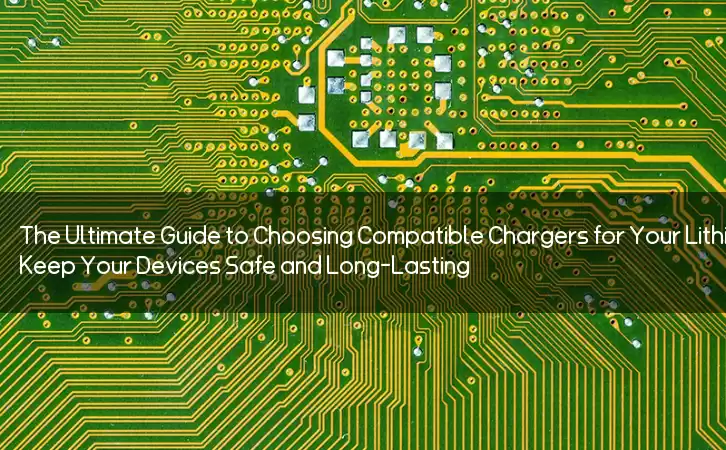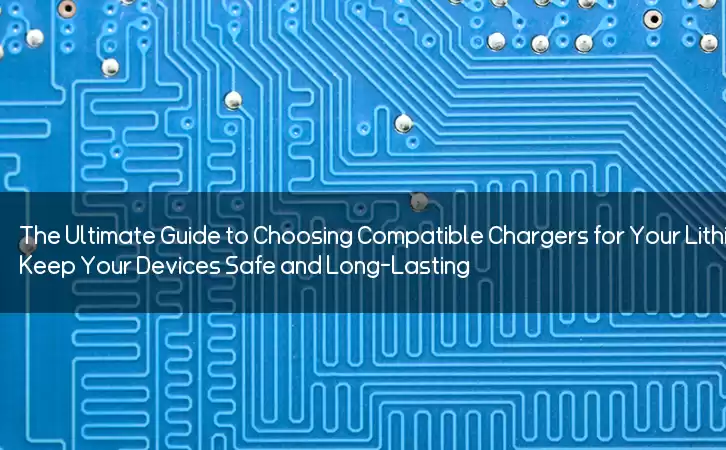Information Center
The Ultimate Guide to Choosing Compatible Chargers for Your Lithium Ion Batteries: Keep Your Devices Safe and Long-Lasting
Published:2023-07-28 20:35:44 Author:Green WCND Views:39Lithium ion batteries are a popular choice for electronic devices due to their high energy density, low maintenance requirements, and ability to recharge. However, not all chargers are compatible with lithium ion batteries, and using the wrong charger can cause damage to both the battery and the device it powers. In this article, we will discuss what chargers work with lithium ion batteries and some important considerations to keep in mind.

The basic requirement for a charger that works with lithium ion batteries is that it should provide the correct voltage and current. Lithium ion batteries require a specific voltage range for charging, typically 4.2 to 4.3 volts per cell. The current should be within the recommended range for the battery, which is usually printed on the battery or provided in its documentation. Using a charger that provides too much voltage or current can cause the battery to overheat, which can lead to reduced capacity or even a fire risk.

There are several types of chargers that are compatible with lithium ion batteries, including:

1. Dedicated lithium ion battery chargers: These chargers are designed specifically for lithium ion batteries and provide the correct voltage and current for safe charging. They may also include additional features such as overcharge protection, which helps prevent damage to the battery.
2. Universal chargers: These chargers are designed to work with different types of batteries, including lithium ion. They may have settings or switches to adjust the voltage and current to the correct levels for the battery being charged.
3. USB chargers: Many electronic devices, such as smartphones and tablets, are charged using a USB cable and an AC adapter. These adapters are often compatible with lithium ion batteries, as long as they provide the correct voltage and current.
It’s important to note that not all USB chargers are created equal. Some may not provide enough power to charge the battery, while others may provide too much power, which can damage the battery. When using a USB charger, make sure it is rated for the device and has been tested for compatibility with lithium ion batteries.
When choosing a charger for a lithium ion battery, there are several factors to consider:
1. Capacity: Make sure the charger is capable of charging the battery to its full capacity. Using a charger that can’t fully charge the battery can lead to reduced capacity over time.
2. Safety features: Look for chargers that include safety features such as overcharge protection, short circuit protection, and overheat protection. These features can help prevent damage to the battery and device.
3. Brand compatibility: Some brands may have specific requirements for chargers that work with their batteries. Check the battery and device documentation to ensure you are using a charger that is compatible with the brand.
In conclusion, using the correct charger is important for the safe and effective charging of lithium ion batteries. Chargers that provide the correct voltage and current, as well as safety features, are essential for maintaining the health of the battery and extending its lifespan. When choosing a charger, be sure to consider factors such as capacity, safety features, and brand compatibility. With the right charger, you can enjoy the benefits of lithium ion batteries without worrying about damage to your devices.
The battery pack is the heart of a golf cart, silently powering every acceleration and climb on the green. However, battery degradation often goes unnoticed, mu···
The battery pack is the heart of a golf cart’s power system, yet maintaining it has long been a challenge for technicians. Traditional troubleshooting methods—···
For golf course managers, ensuring smooth and efficient operations is crucial for providing a memorable experience for golfers and maintaining the reputation of···
A battery tester ensures golf course cart batteries operate efficiently and reduces downtime through the following ways:I. Precise Battery Condition DiagnosisOp···





